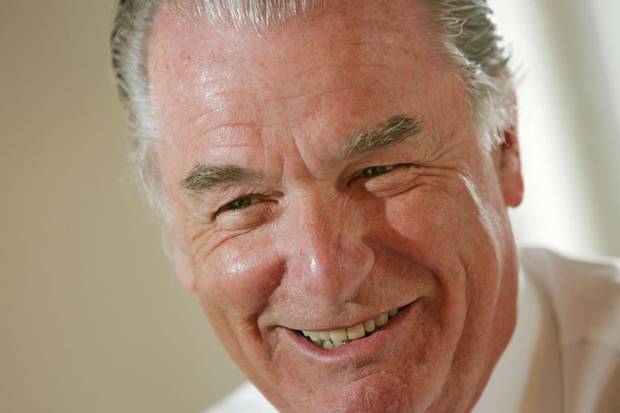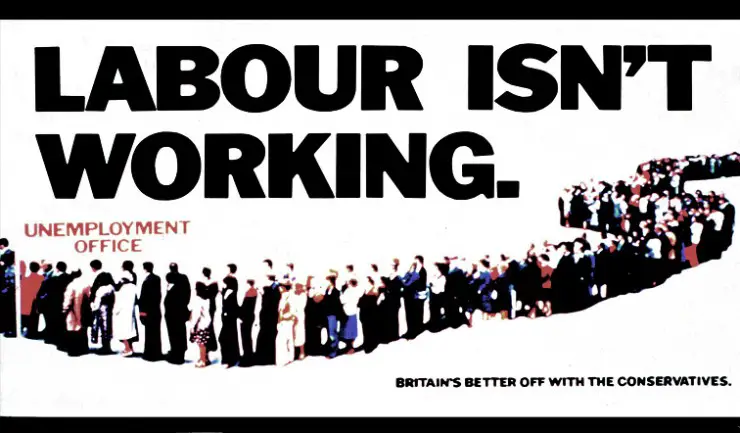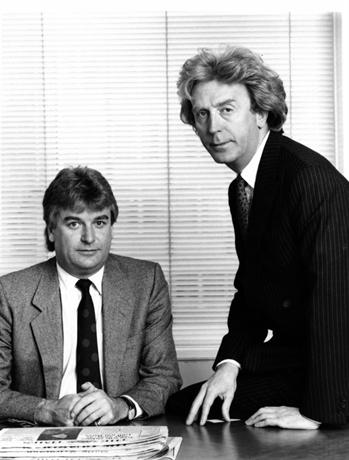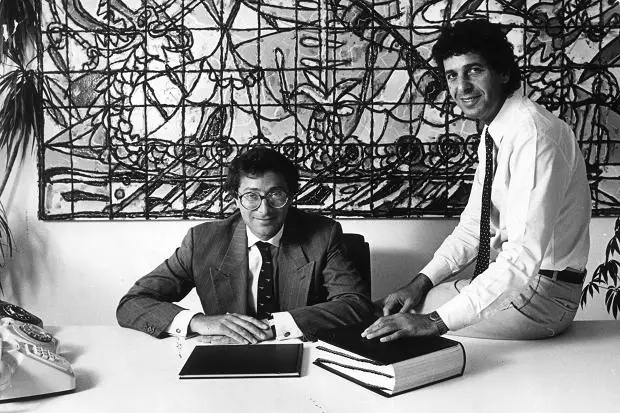The Fantastic Mr Fox, you may recall, is a Roald Dahl story about a fox, a much-decried species in the English countryside, who triumphs over his adversaries (boorish humans) through a mixture of cunning, wit and charm.
And, it has to be said, principle.
Whenever I think of Mr Fox, which I don’t very often, Tim Bell comes to mind. Here he is looking quite foxy (in later life), much more foxy than Quentin Bell’s illustrations of Mr Fox for Doahl’s book.


And here here is in his pomp as MD of Saatchi and Saatchi 30 years ago, at a time when the agency was becoming the biggest in the world. Is he not the 70’s account man par excellence?


So an interesting guy, now a member of the House of Lords, of course.
So how did Mr Fox rise to his present eminence and what does he have say about it in his memoir Right or Wrong?
Most of it, assembled from conversations with Charles Vallance and David Hopper, is about his involvement with Margaret Thatcher’s Tory Party. Bell and Saatchi, to a degree, became famous with their campaign that helped her unseat Labour PM Jim Callaghan in 1979. Callaghan, who was not as nice as he looked and he didn’t look that nice, was still the favourite to win the election as nobody seemed to like Thatcher either, including prominent members of her own party.
But Bell and PR man Gordon Reece got to grips with her and Charles Saatchi, who certainly wasn’t a Tory supporter at the time, although it was often difficult to determine what Charlie supported apart from himself, produced, inter alia, the famous ‘Labour Isn’t Working’ poster.


So the Saatchis and Bell were off and running. Bell, a North London boy from Southgate, is a strange mixture. On the one hand he he supped fully of adland excesses at a time when excesses justified the description. On the other he says he believes in – and who are we to doubt him? – the Tory virtues of respect for your elders, tradition, the church, great men etc. Perhaps.
But then Bell and the Saatchis fell out, Charlie was pissed off when Bell began to be referred to as the ‘third brother,’ Maurice because Bell was just so much more charismatic. Bell because he felt excluded from their bizarre schemes for global domination.
So he left, which led to all sorts of unpleasantness. As editor of Marketing Week I received a call from Charlie asking why we hadn’t written about the various rumours about Bell circulating in Private Eye and other esteemed organs. I said it wasn’t any of our business until it reflected on the business. It’s probably the last call Charlie and I ever had – which I rather regretted because, for all his faults, Charlie was a genius adman and terrific company when he wanted to be.
Anyway Bell went on and hooked up with Frank Lowe, the former boss of CDP who had set up Lowe Howard-Spink. Out of the fire, into the frying pan – although, frustratingly, there are only a few pages in the book on this. The book actually reads reads as though it has been edited with a palette knife.
Bell and Lowe were never going to work – Bell itemises how Frank disappeared in a huff for four weeks when he thought Bell was getting too much attention – but Bell somehow or other morphed this into a PR business, which then became Chime Communications and now, as far as he’s concerned, is once more the Bell Pottinger PR business.
Sadly for the book, this is mostly lost amidst loads of stuff about Thatcher (you’re either a fan or you’re not and, if you’re not, no amount of special pleading is going to create a ‘great’ person) and some others who are also ‘great.’ The late David Frost comes into this category – a proper editor might have demurred, for all Frostie’s achievements.
But, in this, this smoothie, somewhere-to-the-right-of-Attila the Hun ad cum PR man emerges as the guy you’d like to have a drink with. He is the fantastic Mr Fox, a despised species who journalists and others like because – there’s actually no real reason not to.
A couple of years ago I wrote something about a Chime deal with Simon Gulliford, a marketing consultant who had been involved in the pitch that saw Easyjet head to Chime agency VCCP. Chime bought Gulliford’s company soon after.
Bell wrote: “Dear Stephen, your gossip sheet this morning implies there is wrongdoing in our acquisition of Gulliford Consulting. This is not true and the allegation is without foundation. There is no connection between this business transaction and the winning of the easyjet account by VCCP.”
Gossip sheet indeed. I take that as a compliment.
At one point in his memoir Bell notes that Ivan Fallon in his book on the Saatchis, The Brothers, wrote that Bell was thought by many to be the only nice person in Saatchi and Saatchi. Charlie removed this from the final text.
Well I’m sure there were other nice people there too. There was..and then..oh, never mind.
When Bell teamed up with Lowe they had this picture taken, perhaps one of the weirdest of two middle-aged businessmen with poncey hairstyles you’ll see (Frank was usually snapped by Bailey but maybe he was away).


Which was an almost exact reprise of this one taken by my former Campaign colleague Keith McMillan of the Saatchis, a decade before. Keith took about 400 shots, separately and together, and this was the only one Charlie (who was paranoid about his pics although he was a good-looking bloke) would accept. Obviously it’s got one of Charlie’s paintings on the walls.


So, for Bell, a troubled time and you suspect that his heart still lies with what Saatchi once threatened to be. But, just like Mr Fox, he’s come through it despite cancer and divorce from his beloved Virginia.
I don’t know him that well; I’ve had lunch with him a couple of times (on one occasion he told me he kept slim by only clearing half his plate – this one was piled high with roast beef and Yorkshire pudding) and interviewed him a few times.
But I’ve never heard anyone who worked for him say he was an asshole or worse; I wish I could say the same.
So Right or Wrong is worth a read. Craig Brown in the Mail on Sunday, who’s our best book reviewer, gave it one out of five – which is a bit harsh, but maybe you had to be there. I was for a bit and I hope Mr Fox keeps cheating the odds for a while longer.









